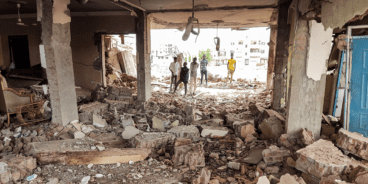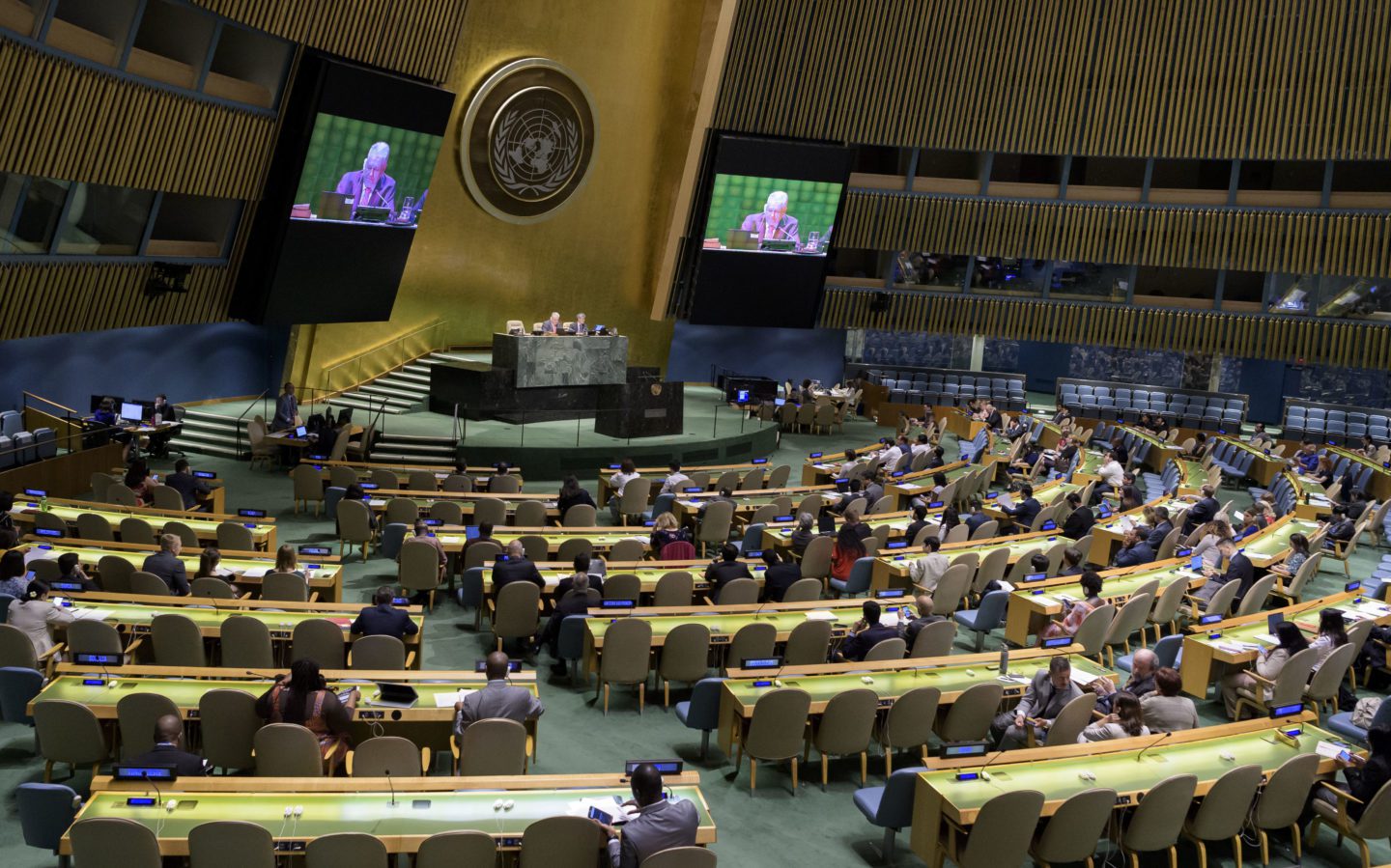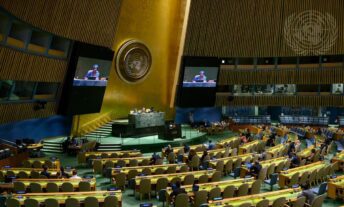
Remarks at Ministerial Side-Event “Code of Conduct regarding the UN Security Council action against genocide, crimes against humanity or war crimes”
As delivered by Dr. Simon Adams, Executive Director of the Global Centre for the Responsibility to Protect. United Nations Headquarters, New York.
I would like to thank the Foreign Ministers of Liechtenstein, Guatemala and New Zealand for organizing today’s presentation of the Code of Conduct regarding Security Council action aimed against genocide, crimes against humanity and war crimes. I’d also like to acknowledge my colleague Ken Roth from Human Rights Watch for his powerful speech.
The UN was formed in the aftermath of the Holocaust and a devastating world war. And not since 1945 has the plight of millions of civilians been more desperate. War crimes and crimes against humanity are being perpetrated in several conflicts today. War and atrocities have displaced almost 60 million people.
In Syria, almost a quarter of million people have been killed and civilians continue to face the daily threat of barrel bombs, beheadings and an almost unimaginable array of atrocities perpetrated by the Syrian government and numerous non-state armed groups. Four double vetoes have obstructed the UN Security Council from upholding its responsibilities in Syria. They have shielded perpetrators from accountability and allowed those responsible to commit mass atrocity crimes in a climate of complete impunity.
Mass atrocities always pose a grave threat to international peace and security. We believe that a vote against a credible draft Security Council resolution aimed at preventing mass atrocity crimes is an abdication of the responsibility bestowed upon Security Council members in the UN Charter. That’s why we say that the Responsibility to Protect means that the permanent members of the UN Security Council also have a responsibility not to veto in such situations.
There has been growing momentum across the world – from both governments and civil society – calling upon all Members of the Council to agree on a collective commitment not to vote against credible action to prevent mass atrocities. We welcome both historic initiatives: the ACT group’s Code of Conduct as well as the French/Mexican Declaration on veto restraint. Both initiatives are entirely compatible and pursue the same objective.
It is encouraging to see that 7 out of the 15 present Council Members, including two Permanent Members, have already signed up to the ACT Code of Conduct, as well as 3 out of the 5 candidates standing for election to the Security Council this year. As civil society members we will continue to put pressure on all aspiring members to subscribe to the Code as a prerequisite for other states to support their election to the Council.
As we look towards the 70th anniversary of the UN this October, we acknowledge that the UN’s relevance, success and survival in our century will be measured, in no small part, by its ability to meaningfully uphold its Responsibility to Protect those facing genocide, war crimes and crimes against humanity. “We the peoples,” should expect nothing less.
Related Content


Summary of the 2023 UN General Assembly Plenary Meeting on the Responsibility to Protect
